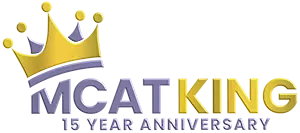Pros and Cons of Applying Early to Medical School

Home • Pros and Cons of Applying Early to Medical School
Medical school admissions are among the most demanding application processes in higher education. From completing required coursework to preparing for the MCAT and writing essays, the process often stretches across months, sometimes years. For students who are eager to secure their future sooner, there are options to apply early. These come primarily in two forms: Early Assurance Programs (EAPs) and Early Decision Programs (EDPs).
Both routes allow applicants to know their admissions decision ahead of the traditional cycle. EAPs often invite applications from sophomores or juniors and may waive the MCAT. EDPs, on the other hand, allow seniors to apply to one medical school early, usually with the requirement that if admitted, they must attend.
The appeal of early application is clear. Students gain peace of mind, avoid the stress of waiting, and sometimes skip the MCAT entirely. But the drawbacks are just as real: reduced flexibility, intense competition, and the need to commit earlier than most. Below, we’ll explore the benefits and disadvantages in detail to help you evaluate if this path aligns with your goals.
The Pros of Applying Early
1. Certainty and Reduced Stress
The greatest benefit is peace of mind. Securing admission early allows students to move forward without the uncertainty that comes with the traditional cycle. This can reduce stress significantly, freeing mental and emotional energy for academics, research, or personal growth.
2. Potential to Skip the MCAT
Many Early Assurance Programs waive the MCAT or require only a lower minimum score. For students who struggle with standardized testing or who prefer to focus on coursework and experiential learning, this is a substantial relief.
3. More Academic Freedom
With acceptance secured, students are no longer confined to a rigid pre-med checklist. They can pursue majors in the humanities, social sciences, or engineering, or study abroad, while still being on track for medical school. This often results in more well-rounded physicians who bring unique perspectives into healthcare.
4. Financial Advantages
Skipping the MCAT saves money on prep courses, study materials, and test fees. Additionally, students who gain early acceptance avoid the costs of submitting multiple secondary applications and traveling for interviews at numerous schools.
5. Ability to Focus on Enrichment
Without the looming pressure of applications, students can dedicate time to meaningful pursuits such as volunteering, leadership positions, community service, or research. These experiences may not only strengthen their skills but also prepare them for the values-driven nature of medicine.
6. Competitive Edge with Experience
Even if a student applies early and is not accepted, the process itself provides valuable insight. They gain practice writing personal statements, gathering letters of recommendation, and interviewing. These experiences can make their eventual traditional application stronger.
The Cons of Applying Early
1. Limited Flexibility
Early programs often require students to commit to a single medical school if accepted. This binding agreement removes the opportunity to compare offers, financial aid packages, or school environments.
2. Early Commitment to Medicine
Applying as a sophomore, junior, or even early senior requires clarity of purpose before many peers have fully explored their career interests. Students who are still uncertain about their long-term path may feel rushed into making a life-changing decision.
3. Highly Competitive Programs
Early programs typically have fewer available seats than the traditional cycle. Acceptance rates are often lower than average, meaning that only top students with strong academic records and meaningful experiences are admitted.
4. Risk of Missing Out on the MCAT Advantage
While avoiding the MCAT feels like a blessing, it can backfire. If a student later decides to apply outside their early program, not having a strong MCAT score could limit their options. Even in programs that require a score, the bar may be lower, which means students are less prepared if they later need to compete broadly.
5. Additional Academic or Honors Requirements
Some schools expect early applicants to complete honors-level coursework or maintain strict GPA thresholds. For students still adjusting to college, these requirements can add pressure.
6. Locking into One School
Even if a student later realizes that another medical school is a better fit, early acceptance usually prevents them from switching. This can feel restrictive if priorities change over time.
Pros vs. Cons at a Glance
| Pros | Cons |
|---|---|
| Certainty and peace of mind | Binding commitment to one school |
| Potential to skip or lower MCAT requirement | Limited flexibility in exploring other schools |
| Freedom to explore diverse courses and interests | Early decision-making required |
| Financial savings on applications and MCAT prep | Often more competitive than the traditional cycle |
| More time for meaningful extracurriculars | Some programs add extra GPA or honors requirements |
| Experience with applications even if not admitted | Risk of lacking a strong MCAT score if needed later |
Should You Apply Early?
Applying early makes sense for students who:
- Are confident in their decision to become a physician.
- Have already demonstrated strong academics and commitment to service.
- Are comfortable committing to one medical school, often without comparing multiple offers.
- Prefer to avoid the stress of the MCAT or traditional admissions cycle.
It may not be the right choice for students who:
- Want the flexibility to apply broadly.
- Need more time to explore their interest in medicine.
- Are not yet competitive academically or extracurricularly.
- Feel uncertain about committing to one school so early.
Final Thoughts
Applying early to medical school offers significant advantages, from peace of mind to academic freedom. Yet it also comes with limitations that make it unsuitable for some. If you are clear about your path, competitive academically, and ready to commit, an early program could be the perfect fit. If you prefer flexibility or need more time to prepare, waiting for the traditional application cycle may give you a better chance to present your strongest self.
The choice ultimately comes down to knowing yourself. Early programs reward certainty and preparation, while the traditional route offers time and options. Both can lead to the same goal: a seat in medical school and a career dedicated to caring for others.




